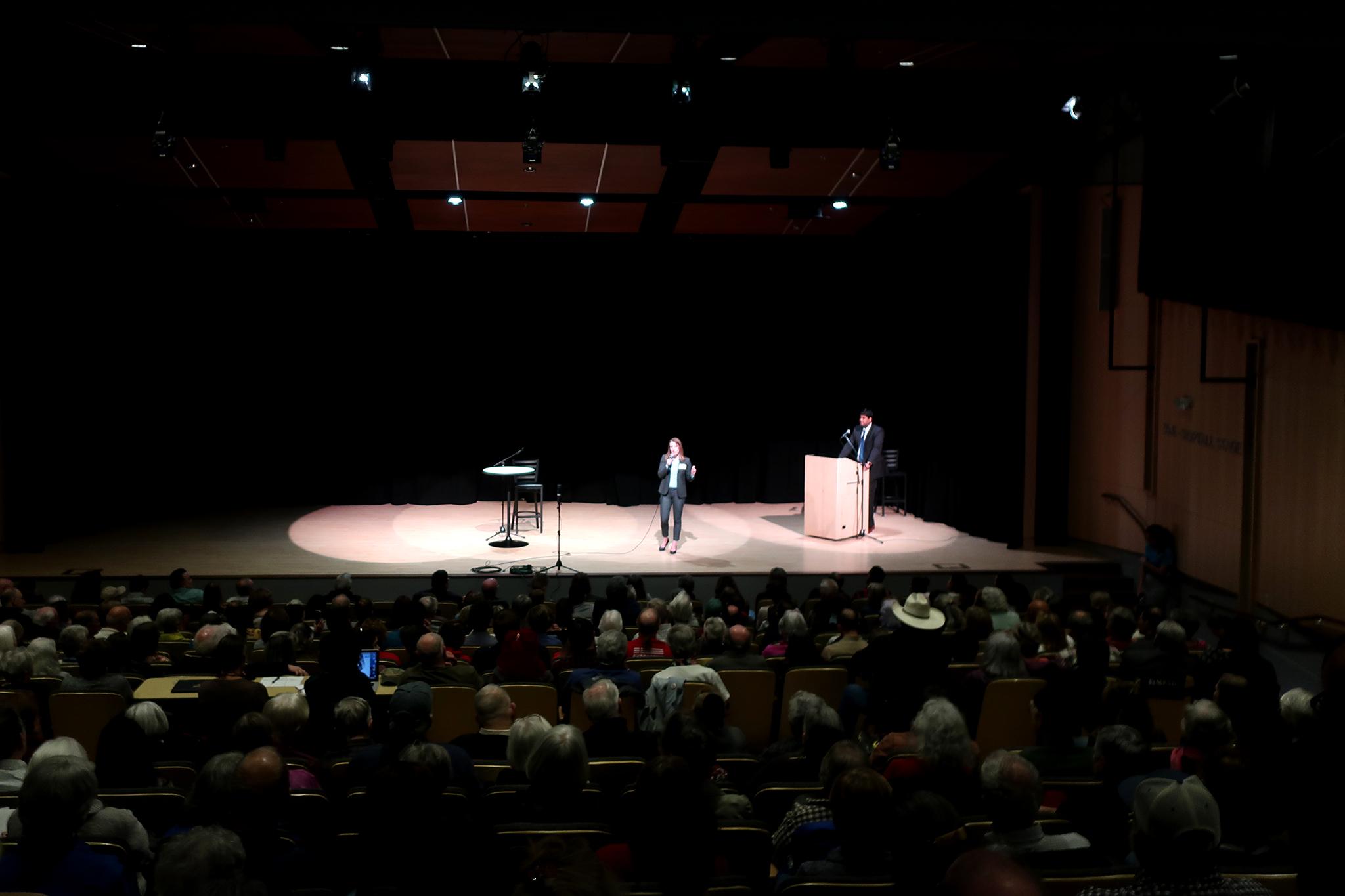
The five women still in Colorado's Democratic Senate race say they are up against a lot.
There is, of course, history -- there's never been a woman Senator from Colorado.
There are the present-day barriers -- the difficulties gaining access to money, which in turn creates its own levels of cachet.
And then, there are the every day abject humiliations.
"In the last week alone, I've actually had, not one, but two, had two supporters -- people I did not know -- come up and kiss me. I've had one pat me on the ass and another eyeball me from top to bottom -- just this last week," said Trish Zornio, an educator who says she wants to bring "scientific expertise" to DC.
Zornio, speaking Sunday at a candidate forum in Longmont on Latinx issues, called those the "overt" components of being a female candidate. She then added some of the more subtle considerations, like research that shows voters consider leadership best personified by someone standing six-feet tall.
"So when I go to talk, often the podiums are at the right height, and I look like a little kid standing there, because I'm five-one," she says.
For Zornio and the other four female candidates in the race -- psychologist Diana Bray, activist Lorena Garcia, pastor and women's studies professor Stephany Rose Spaulding and immigrant-rights activist Michelle Ferrigno Warren -- there's also the matter of trying to make a mark in a contest that, in most quarters, is being dominated by a couple of the other (male) candidates in the race -- former Governor John Hickenlooper and Andrew Romanoff, who served eight years in Colorado's House of Representatives -- four of them as Speaker.
Hickenlooper's entrance into the race last summer, and his immediate endorsement by the Democratic Senate Campaign Committee, was a flash point for the field's female candidates. Six of them signed on to a letter asking the DCSS to rescind its support during the primary, something it declined to do.
In the months since, two the best known-women in the race, state Senator Angela Williams and former state House majority leader Alice Madden, dropped out.
Whomever emerges from the June 30th primary will then have to face an incumbent, Cory Gardner. But despite odds that say "No Way," the candidates insisted Sunday they'll be able to find their "Somehow."
"Right now it's all about ballot access -- just like it is for everybody else," said Spaulding, who jumped into the Senate race on the heels of an unsuccessful run for Congress in 2018 in the conservative Fifth District, which includes Colorado Springs and its suburbs. "When you are able to get 126,000 votes in the Fifth District, I think you've got a good chance across the state."
For her part, Zornio, pointed out that she's the only candidate who's visited all of Colorado's 64 counties twice. In addition, her campaign's Twitter account has more than 105,000 followers -- which she says, apart from Hickenlooper, is more than all the other candidates in the race combined.
As Zornio pointed out, "it's more than Jared Polis." And she argued those numbers speak to a potential groundswell of support that may not be captured by traditional accounting.
"They are looked at as a way for successful campaigns to reach people, but they have to be," she says. "Last week, I put out a random Tweet, and I reached over half a million people for free in one morning...
"When we look at what 'media' buys -- it reach people, it buys face time, it buys name ID -- but we're reaching people through other mechanisms. (But) because (we) don't have access to the same monetary structuring as some of the male candidates, we women have to work a little harder."
In fundraising, the female candidates lag far behind the two male frontrunners (the field also includes University of Denver professor David Goldfischer, and Erik Underwood, a Denver Democrat who unsuccessfully ran for governor in 2018). Hickenlooper raised $2.8 million dollars just in the fourth quarter of last year. Other candidates haven't released their Q4 numbers yet, but as of the end of September, Romanoff's total fundraising was $1.4 million. Among the women, Spaulding had brought in around $100,000, Zornio had $89,564, Bray raised $72,198, Warren had $64,730, and Garcia raised $53,643.

Both Zornio and Spaulding, in particular, seemed to resonate with the large crowd at the forum. The attendees, spilling from the main auditorium into a second room, heard all the candidates expound on a potpourri of issues, including immigration, education and climate change.
"We just moved to Longmont from New Mexico," said Sky Yates, "And when we came here, I was kinda under the impression that the air quality here was better, and I'm finding out that's not quite the case. So I want to learn more about the climate, because if I'm going to live here, I'm going to have to breathe."
"Colorado was the first state to allow women to vote," said Warren. "We were leading the country; and here we are, almost 127 years later, and I think we need to look as a women and as a state and say, 'Why were we leading and where have we gone?'
"Nothing has ever been given to me as a woman, everything in my career I've has to fight for. This is no different, and you see five of us up here? I know that's all of our story."








